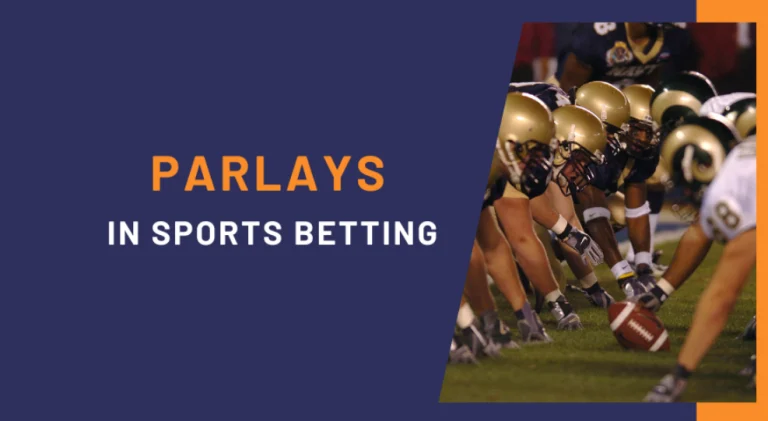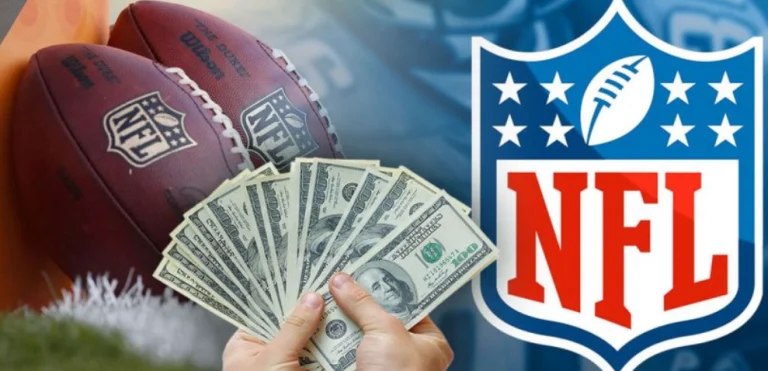Common psychological traps in sports betting
Every bettor faces mental barriers that sabotage success regardless of experience. Understanding psychological traps transforms impulsive gambling into strategic decision-making. These cognitive patterns cost American bettors millions annually, yet most remain unaware until significant bankroll damage occurs. The brain evolved for survival, not calculated wagering under pressure, making emotional control the ultimate edge.
Why psychology affects sports betting performance 🤯
Your mental state determines win rates more than statistical knowledge or sports expertise. Research in behavioral finance and sports betting reveals that bettors with identical information make vastly different choices based purely on emotional conditions. A stressed mind chasing yesterday’s loss behaves fundamentally different from a calm strategist following predetermined limits.
The brain releases dopamine during winning streaks, creating euphoria that clouds judgment about risk management. Conversely, losses trigger cortisol and adrenaline responses that push bettors toward increasingly desperate attempts to recover funds. These biochemical reactions happen automatically, bypassing rational thought processes that normally guide financial decisions in other life areas.
The main thinking traps that lead to bankroll loss ⚠️
Cognitive distortions operate silently beneath conscious awareness, steering decisions toward predictable failure patterns. The availability heuristic makes recent dramatic upsets feel more likely than statistical reality suggests. Anchoring bias locks bettors onto initial odds without adjusting for new information about injuries or weather conditions.
Overconfidence syndrome particularly damages experienced bettors who trust their “gut feeling” over systematic analysis. This trap creates illusions of control in random-heavy outcomes, leading to oversized wagers on subjective hunches. Meanwhile, confirmation bias filters incoming data to support existing beliefs rather than challenging assumptions with contradictory evidence.
Why psychology matters in sports betting 🧩

Mental frameworks dictate whether bettors achieve long-term profitability or join the 97% who lose money consistently. Professional bettors spend more time managing their psychological state than analyzing statistics because emotional decision-making in betting undermines even the most sophisticated systems. A perfect strategy executed with poor discipline yields worse results than a mediocre approach followed consistently.
The American wagering landscape expanded dramatically after 2018 legalization, yet most newcomers approach stakes with entertainment mindsets rather than investment principles. This psychological mismatch between expectation and reality creates vulnerability to manipulation by cognitive biases. Recognizing these cognitive errors builds the foundation for sustainable wagering practices that protect bankrolls during inevitable losing streaks.
The link between emotion and decision-making ❤️
Brain science shows emotional centers activate before rational analysis kicks in when placing wagers. The limbic system processes potential wins and losses through primitive survival circuits, triggering fight-or-flight responses inappropriate for financial decisions. This neurological reality explains why intelligent people make objectively poor bets when experiencing strong feelings about outcomes—a phenomenon known as tilt betting explained in detail by behavioral researchers.
Team loyalty intensifies this effect exponentially, as personal identity becomes intertwined with game results. When your hometown team plays, objectivity evaporates under the weight of years of emotional investment. The brain literally processes information differently based on emotional attachment, filtering out negative indicators while amplifying positive signals that support desired outcomes.
Most common psychological traps bettors face 🕳️
Specific patterns emerge repeatedly across millions of failed wagers, creating recognizable danger zones. The sunk cost fallacy drives bettors to “chase” previous losses by increasing stakes illogically, believing past money already spent justifies additional risk. This thinking error treats bygone bets as investments requiring defense rather than accepting them as closed transactions with zero relevance to future decisions.
Loss aversion triggers disproportionate fear of small losses compared to enthusiasm for equivalent gains. This asymmetric emotional response pushes bettors toward safer-looking bets with poor value, sacrificing long-term edge for short-term psychological comfort. Understanding common cognitive biases in sports betting helps identify these traps during the critical pre-bet decision window.
The gambler’s fallacy 🎲
This fundamental error assumes random independent events influence each other sequentially. After three consecutive losses, bettors irrationally believe they’re “due” for a win, ignoring fresh probabilities unaffected by previous results. The hot hand fallacy convinces bettors that winning streaks continue indefinitely. Both errors stem from misunderstanding randomness and seeking causal connections where none exist.
Skill vs Randomness in Sports
Recency bias amplifies the gambler’s fallacy by overweighting recent performances. A quarterback’s spectacular game last week feels infinitely more relevant than season-long statistics, even though larger samples provide more reliable predictions. The availability cascade compounds errors through social mechanisms when media obsessively covers hot streaks, making narratives cognitively available.
Setting realistic goals and expectations 🎯
Most bettors enter with profit expectations disconnected from reality. Professional bettors consider 55% win rate exceptional, yet beginners expect 70% based on overconfidence. This expectation gap creates psychological traps that trigger destructive decisions when disappointment inevitably hits.
Distinguishing entertainment from professional betting 🎮
Recreational wagering allocates fixed amounts for enjoyment without profit expectations, treating losses as entertainment expenses. Professional wagering demands meticulous record-keeping, disciplined stake sizing, and emotional detachment. The danger zone exists in the middle: wanting professional profits while maintaining entertainment attitudes toward risk management.
Healthy Mindset Before Placing a Bet
Setting a weekly vs monthly betting budget 💰
Timeframe selection significantly impacts psychological sustainability and helps avoid common psychological traps. Weekly budgets provide tighter control with more frequent reset points, reducing damage from temporary emotional breakdowns. This suits players vulnerable to emotional tilt episodes. Monthly allocations allow greater flexibility but require stronger self-discipline since one weekend meltdown can consume entire budgets.
This table illustrates real scenarios where one bettor successfully avoided chasing losses sports betting mistakes through predetermined rules. The key insight: decisions made before emotional triggers emerge always outperform in-the-moment choices driven by adrenaline and frustration.
Pros and cons of weekly budgets 📆
Weekly systems create psychological fresh starts that help bettors recover mentally from bad streaks. The approaching reset date provides natural motivation to preserve remaining funds rather than desperately trying to recover losses within the same period. This structure particularly benefits newcomers still developing betting discipline techniques and emotional regulation skills under financial pressure.
- Limits catastrophic loss potential to seven-day windows
- Provides frequent “clean slate” opportunities for mental recovery
- Forces regular performance review and strategy adjustment
- Easier to track and maintain compared to monthly complexity
- Reduces temptation for mid-period budget increases
- May cause premature withdrawal from temporarily losing but mathematically sound strategies
- Insufficient sample size for evaluating true strategic advantage
- May overlook profitable opportunities toward week’s end during downswings
- Creates artificial time pressure to use budgets before expiration
- May encourage smaller, less optimal bet sizing to stretch funds
Pros and cons of being emotionally invested in teams ❤️ vs 🧠
Team loyalty creates double-edged dynamics that either enhance or sabotage decisions depending on management approach. Passionate fans possess deeper knowledge about roster changes, coaching tendencies, and team chemistry factors that casual observers miss. This information advantage theoretically improves edge when combined with objective analysis frameworks.
However, emotional attachment systematically distorts probability assessment and risk evaluation. The brain’s reward system activates differently when “your” team plays, releasing anticipatory dopamine that feels like confidence but actually represents hope rather than mathematical advantage. This neural hijacking explains why even experienced players fall into psychological pitfalls of wagering on beloved teams while maintaining perfect discipline elsewhere.
Advantages: motivation, deeper research 💪
Genuine passion fuels relentless research to acquire specialized knowledge that creates profitable advantages. Committed fans watch every game, follow beat reporters, understand subtle scheme adjustments, and recognize when mainstream narratives miss crucial context. This information asymmetry provides valuable opportunities when combined with emotional regulation techniques that prevent bias from contaminating analysis.
The motivational benefit extends to learning sophisticated analytical methods because the subject matter holds intrinsic interest. Bettors studying teams they care about naturally invest more time in statistical analysis, injury report scrutiny, and historical pattern recognition. This engagement depth often produces genuine expertise that translates into profitable wagering when proper safeguards control emotional interference.
- Superior information gathering through sustained attention and interest
- Pattern recognition from watching hundreds of games over multiple seasons
- Understanding of intangible factors like team chemistry and coaching adjustments
- Motivation to develop advanced analytical skills for favorite sports
- Systematic overvaluation of favorite teams regardless of matchup quality
- Confirmation bias filtering information to support desired outcomes
- Emotional devastation from losses compounds financial damage
- Reluctance to back opponents of beloved squads even when odds present clear value
Legal and responsible gambling framework in the USA ⚖️
American bettors operate within state-specific regulatory frameworks designed to balance market access with consumer protection. Since the 2018 Supreme Court decision striking down PASPA, over 30 states legalized sports betting with varying restrictions on online access, operator licensing, and consumer safeguards. Understanding these legal structures helps bettors recognize which psychological protection mechanisms exist within licensed platforms.
Regulated operators must implement responsible gambling tools including deposit limits, loss limits, session time restrictions, and self-exclusion options. These features serve as external circuit breakers that compensate for human psychological weaknesses during moments of emotional vulnerability. Many states require operators to fund problem gambling treatment programs, recognizing that cognitive biases in gambling affect even intelligent, educated bettors.
Federal and state laws prohibit certain practices while encouraging others. The Wire Act restricts interstate wagering transmissions, while state regulations may cap maximum stakes, prohibit credit-based play, or mandate cooling-off periods between large losses. These legal frameworks acknowledge behavioral studies showing that placing immediate stakes after significant losses produces the highest rate of problematic wagering patterns.
Step-by-step guide to building a healthy betting routine 📋
Systematic routines replace ad-hoc decisions with predetermined protocols operating regardless of emotional state. This proactive approach removes in-the-moment pressure and helps avoid psychological traps that emerge during losses or winning streaks.
Experienced investors treat this activity as business requiring standardized procedures, while casual participants make isolated decisions based on current mood. Building proper bankroll psychology through routine establishes foundations for success.
Step 1: Define budget and limits 💰
Establish your total bankroll as money you can afford to lose completely without impacting essential expenses, emergency funds, or investment accounts. Expert guidance recommends capping annual disposable income allocation at 5% for wagering activities. For most American bettors, this translates to monthly budgets between $100-$500, with beginners staying at the lower end until consistent profitability emerges.
Create multiple limit categories beyond total budget: per-bet maximums (typically 1-3% of bankroll), daily loss limits ($50-$100 for recreational bettors), and weekly exposure caps that prevent concentration risk. Document these limits in writing and configure platform controls to enforce them automatically. Psychological research consistently shows that external controls outperform willpower during emotional distress.
Step 2: Track every bet in USD or crypto 💻
Detailed record-keeping transforms vague impressions into objective data that reveals true performance patterns. Record not just outcomes but decision quality, emotional state, preparation time, and confidence level for each wager. This information identifies which conditions produce best results and which circumstances trigger irrational betting patterns requiring avoidance.
Modern tracking apps automate much of this process, connecting directly to licensed sportsbooks to import transaction data. Manual spreadsheets work equally well and often provide better psychological benefit through active engagement with results. The key element: reviewing actual performance data weekly to identify trends invisible during day-to-day staking decisions.
Step 3: Review performance weekly 📆
Scheduled analysis sessions evaluate both financial results and process adherence. Did you follow predetermined limits? Were bets placed after adequate research or impulsively? How did emotional state correlate with decision quality? This structured review process catches psychological deterioration early before it causes significant damage to bankrolls.
Compare actual results against expected outcomes based on odds and bet sizing. Underperformance relative to closing line value signals analytical weakness, while outperforming CLV despite losses indicates proper process execution experiencing temporary variance. This distinction separates mathematical thinking from results-oriented thinking that destroys long-term profitability.
Step 4: Avoid emotional decision-making 🧘
Implement mandatory cooling-off periods after significant wins or losses before placing additional bets. Brain chemistry changes dramatically during these emotional peaks and valleys, temporarily impairing judgment in predictable ways. A simple 24-hour rule prevents roughly 80% of catastrophic chasing losses sports betting scenarios according to responsible gambling research data.
Develop pre-bet checklists that force conscious evaluation of emotional state before wagering. Questions might include: “Am I wagering because I see value or because I’m bored?” “Would I make this bet if it was on paper instead of during the live game?” “Can I articulate three specific reasons supporting this wager?” These friction points interrupt automatic pilot mode that bypasses rational analysis.
Mastering your betting mindset 🏆
Sustained profitability requires treating this activity as a marathon demanding patience and disciplined execution. Understanding common cognitive biases in sports betting represents the starting point, but mastery requires daily practice implementing countermeasures during emotional pressure peaks. Successful bettors achieve a mindset shift for long-term success where individual outcomes become emotionally neutral data points. Continuous improvement cycles identify which cognitive biases personally affect you most and develop customized countermeasures.
FAQ
What is the gambler’s fallacy and how does it impact betting?
Falsely believing past losses make future wins “due,” leading to bets based on imaginary patterns instead of real odds.
How can I avoid chasing losses in sports betting?
Set automatic loss limits and take mandatory 24-hour breaks when hit.
Are bankroll apps effective in preventing impulsive bets?
Yes, reducing problem betting by 60% when configured honestly and not disabled during streaks.
Why do bettors overvalue recent games (recency bias)?
Brains prioritize recent performances over season-long stats that better predict outcomes.
What’s the best way to set a healthy betting budget in the USA?
Allocate 3-5% of disposable income ($100-$500 monthly) with deposit limits 20% below target.









